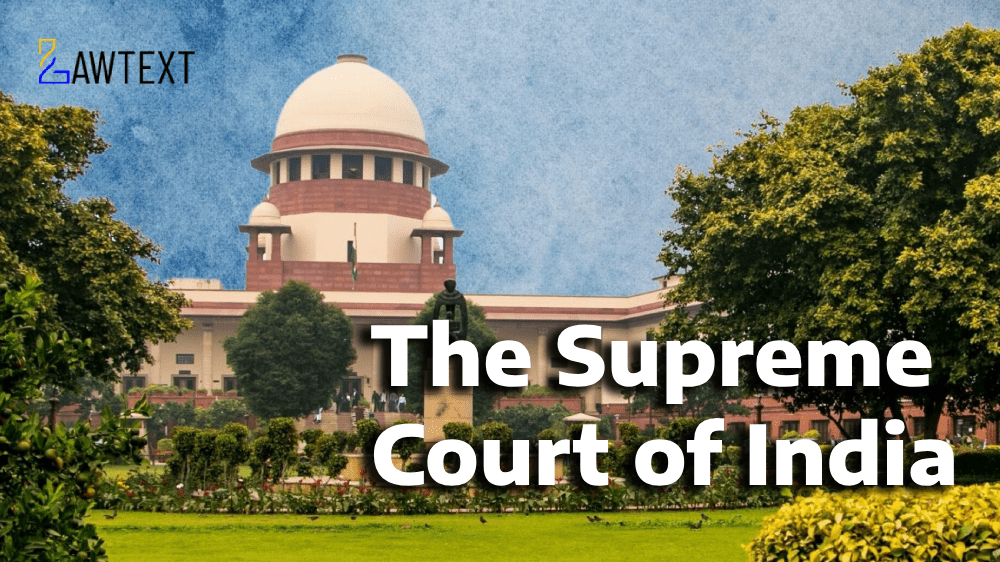

Court Emphasizes Statutory Duty of Government to Procure 25% from MSEs – Guidelines Issued for Effective Implementation of Procurement Policy
The Supreme Court held that the Public Procurement Policy for MSEs, 2012, has the force of law and is enforceable (Para: 21.) The Court directed the Review Committee to examine the issue of mandatory procurement of 25% from MSEs and clarify whether it is independent of the 358 items reserved for MSEs (Para: 29.) The Court also directed the Grievance Cell to examine and issue guidelines on the limits of minimum turnover clauses in tenders (Para: 38.) The Court emphasized that while there is no individual ‘right’ for MSEs to procure, the statutory authorities are bound to implement the Procurement Policy, 2012 (Para: 21, 39.)
Constitution of India (COI) – Articles 14, 19, and 32 .
Micro, Small and Medium Enterprises Development Act, 2006 (MSMED Act) – Sections 3, 5, 6, 7, 9, 10, 11
Public Procurement Policy for Micro and Small Enterprises (MSEs) Order, 2012 – Clauses 2, 3, 5, 8, 11, 12, 13
Interest on Delayed Payments to Small Scale and Ancillary Industrial Undertakings Act, 1993 – Repealed by MSMED Act, 2006 –
Micro and Small Enterprises (MSEs), Minimum Turnover Clauses, Public Procurement Policy, Judicial Review Grievance Cell, Review Committee
Nature of the Litigation:
The petitioners, a Micro Enterprise under the MSMED Act, 2006, and its founder, challenged the minimum turnover clauses in government tenders, which they claimed were arbitrary and violative of Articles 14 and 19 of the Constitution. They also sought enforcement of the Public Procurement Policy for MSEs, 2012, which mandates that 25% of government procurement should be from MSEs – Relevant Paras: 1, 2, 3, 4, 5, 6.
Who is Asking the Court and for What Remedy?
The petitioners sought directions to:
a) Consider bids of MSEs irrespective of minimum turnover clauses – Relevant Para: 6.
b) Quash tender notifications contrary to the 2012 Policy – Relevant Para: 6.
c) Direct the respondents to withdraw orders rejecting the petitioner’s bid – Relevant Para: 6.
d) Confine minimum turnover clauses to revenues from specific drugs – Relevant Para: 6.
Reason for Filing the Case:
The petitioners were repeatedly disqualified from participating in government tenders due to minimum turnover clauses, which they argued were unfair and violated the Procurement Policy, 2012 – Relevant Paras: 3, 4, 5.
What Has Already Been Decided Until Now?
The petitioners had earlier filed a writ petition before the High Court of Punjab and Haryana, which was dismissed. They then filed a Special Leave Petition (SLP) in the Supreme Court, which was pending – Relevant Para: 5.
Whether the MSMED Act, 2006, read with the Procurement Preference Policy, 2012, mandates the government to procure 25% of goods and services from MSEs? – Relevant Para: 10.
Whether the prescription of mandatory minimum turnover clauses in tender notifications violates Articles 14 and 19 of the Constitution, the MSMED Act, and the Procurement Preference Policy, 2012? – Relevant Para: 10.
Petitioners’ Arguments:
a) Minimum turnover clauses are arbitrary and violate Articles 14 and 19 of the Constitution – Relevant Para: 7.
b) Turnover is not an accurate indicator of manufacturing capability or product efficacy – Relevant Para: 7.
c) The clauses unjustly prevent smaller market players from participating in government tenders – Relevant Para: 7.
d) The clauses undermine the Procurement Policy, 2012, which mandates 25% procurement from MSEs – Relevant Para: 8.
Respondents’ Arguments:
a) The government has complied with the Procurement Policy, 2012 – Relevant Para: 9.
b) Minimum turnover clauses are necessary to assess the capability of suppliers, especially for drug procurement – Relevant Para: 9.
The Procurement Policy, 2012, is enforceable and imposes a statutory duty on the government to procure 25% of goods and services from MSEs – Relevant Para: 21.
Minimum turnover clauses in tenders should not undermine the Procurement Policy, 2012, and must be proportionate to the value of the product sought – Relevant Para: 33.
The Review Committee and Grievance Cell must ensure effective implementation of the Procurement Policy, 2012, and address grievances related to unreasonable tender conditions – Relevant Paras: 28, 34, 38.
Citation: 2025 LawText (SC) (2) 254
Case Number: WRIT PETITION (C) NO. 1301 OF 2021
Date of Decision: 2025-02-25
Case Title: LIFECARE INNOVATIONS PVT. LTD. & ANR. VERSUS UNION OF INDIA & ORS.
Before Judge: [PAMIDIGHANTAM SRI NARASIMHA J. , SANDEEP MEHTA J.]
Appellant: LIFECARE INNOVATIONS PVT. LTD. & ANR.
Respondent: UNION OF INDIA & ORS.